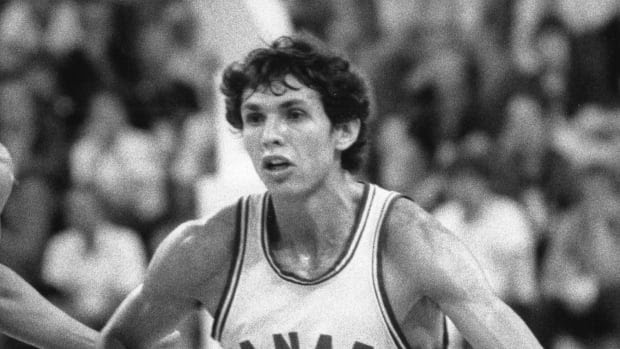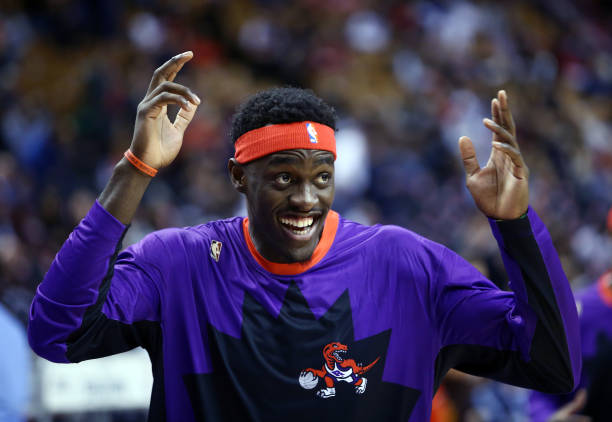Early Tuesday morning, news broke that Eli Pasquale had passed away at just 59 years old.
To say that Pasquale’s death is a huge loss to the basketball community is a massive understatement. His accomplishments in the sport and for the country of Canada secures his place as one of the nation’s most celebrated athletes.
Before there was Steve Nash, there was Eli Pasquale. Born and raised in Sudbury, Ontario, where winter sports like hockey were often played, Pasquale decided to break from the mould and try basketball. However, Pasquale was a mere 5-foot-3 when he played his first game of organized basketball in Grade 8. Considered too small to play the game, the fiery teenager was out to prove the doubters wrong.
Pasquale moved from his humble Northern beginnings out West, to play basketball for the University of Victoria. Before the point guard arrived, it was the University of British Columbia (UBC) who was the premier basketball program out West, having already won two national championships in 1970 and 1972.
Pasquale changed the Victoria Vikes’ fortunes. He would propel the school to win four national championships from 1980 to 1984. Often in attendance at McKinnon Gymnasium was a young Steve Nash, who would later go on to have a Hall-of-Fame NBA career and win two NBA MVP’s.
Pasquale would be selected by the Seattle SuperSonics in the fifth round of the 1984 NBA Draft. Despite a decorated university career, Pasquale would only play three preseason games before heading to Argentina, West Germany and Switzerland to play professional basketball.
This is an awesome picture right here. Eli Pasquale making life difficult for Drazen Petrovic. Both represented their Countries, Canada and the former Yugoslavia, with great pride. May they both Rest in Peace. 🙏🏽 pic.twitter.com/ORqlZBMy5F
— Dwight Walton 🇨🇦 (@Bballinsider) November 5, 2019
Pasquale not making it to the NBA demonstrates the affinity for teams to go with bigger, physical players. Not only was Pasquale trying to prove that a 6-foot-1 point guard can make it in professional basketball but also that Canadian players belong on that stage. It was in his performances for Team Canada that launched the country into basketball success on the global stage.
The 1983 University Games were a giant leap forward, where Pasquale and the Canadians won gold, which included defeating a Karl Malone, Charles Barkley-led United States squad in the semifinals. Jay Triano, one of Pasquale’s teammates and currently the lead assistant coach to the Charlotte Hornets, remembers how Eli was pivotal in developing a winning identity.
“It seemed that none of his shots would miss, and his passes found us through every gap,” said Triano. “Any time the United States would try to mount a comeback, he was there to diffuse the situation. The rest of us got a surge from his play.”
Team Canada would qualify for the 1984 Summer Olympics, where Pasquale would average 8.1 points per game 4.3 assists per game en route to the country finishing in fourth place. His marquee performance came in the quarterfinals, when his team high seven assists propelled Canada to a 78-72 victory over Team Italy.
Canada’s best finish at an Olympics since medaling at the 1936 Games, Pasquale would follow it up in 1988 at Seoul with a sixth place result. Canada was garnering international attention for its basketball talent, and Pasquale was the impetus, through his competitive and energetic spirit.
“He was a true team leader who was greatly respected by his teammates, coaching staff and by opposing competitors,” said Pasquale’s former coach, Ken Shields.
After a five-year hiatus from playing for Team Canada, Pasquale had a comeback tour when he was 37 years old. His veteran experience and leadership fuelled Canada defeating Cuba 92-83 to qualify for the 1998 FIBA World Championship.
When his basketball playing days were over, Pasquale highlighted the philanthropic side to his personality. He would open up basketball camps all across Vancouver Island, including Victoria, with the hopes of developing and moulding the future generation of talent. These namesake camps speak to the lasting legacy that Pasquale leaves behind, well after his tragic death.
“Canada has lost one of its greatest athletes,” former teammate Dwight Walton said on Twitter. “A winner and a class act in every sense of the word. I was proud to call him a teammate and more importantly, a friend.”
In an age where contracts and playing time predicate a player’s decision to compete for their country, Pasquale set that aside. He wore the red and white selflessly with the hopes of inspiring a future generation of Canadians to get into the sport that he loved.
The current crop of Canadian basketball players looking to qualify for the Olympics next summer look to Steve Nash as the igniter who got Canada back on the international stage. But for Nash’s generation, it was Eli Pasquale, who initiated and harnessed the love and passion for basketball that is permeated across the country to this day.




